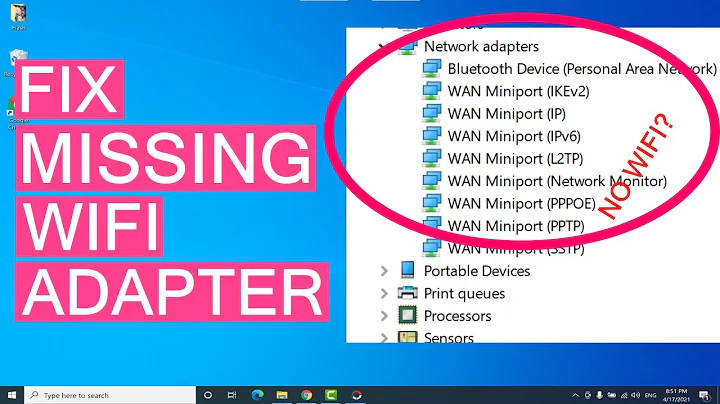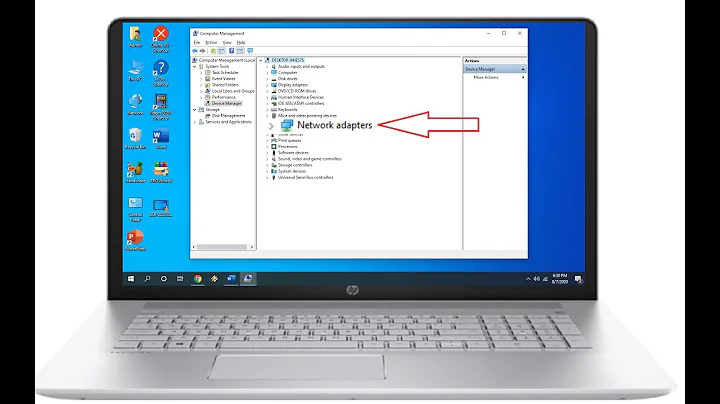How To Diagnose Faulty (onboard) Network Adapter
I always suspect the cables long before I suspect the actual Ethernet NICs. They almost never fail! To methodically debug the issue I'd first eliminate the following things:
- Ethernet Cable
- Ethernet female connectors on NIC and switch
- Another device on the network using the same IP
Once the above have been eliminated as potential problems then move up to the NIC itself and it's software/drivers/configurations.
To debug the NIC you can do the following:
- check the
dmesglog for messages about the NIC - confirm the configuration information on
ifconfigfor the NIC - use
ethtool eth0to confirm NIC's healthy and functioning normally
ethtool
Here's a sample of ethtool output:
$ sudo -i ethtool eth0
Settings for eth0:
Supported ports: [ TP ]
Supported link modes: 10baseT/Half 10baseT/Full
100baseT/Half 100baseT/Full
1000baseT/Half 1000baseT/Full
Supports auto-negotiation: Yes
Advertised link modes: 10baseT/Half 10baseT/Full
100baseT/Half 100baseT/Full
1000baseT/Half 1000baseT/Full
Advertised auto-negotiation: Yes
Speed: 1000Mb/s
Duplex: Full
Port: Twisted Pair
PHYAD: 0
Transceiver: internal
Auto-negotiation: on
Supports Wake-on: pg
Wake-on: d
Current message level: 0x000000ff (255)
Link detected: yes
You can also use ethtool -S <dev> to get more information as to the nature of the types of failures the NIC has been encountering:
$ sudo -i ethtool -S eth0
NIC statistics:
tx_bytes: 28770995867
rx_bytes: 48077578307
tx_broadcast: 126301
rx_broadcast: 556519
tx_multicast: 23471
rx_multicast: 208434
tx_unicast: 56635512
rx_unicast: 62288584
tx_mac_pause: 0
rx_mac_pause: 2
collisions: 0
late_collision: 0
aborted: 0
single_collisions: 0
multi_collisions: 0
rx_short: 0
rx_runt: 0
rx_64_byte_packets: 949129
rx_65_to_127_byte_packets: 9301705
rx_128_to_255_byte_packets: 22481955
rx_256_to_511_byte_packets: 433087
rx_512_to_1023_byte_packets: 1755854
rx_1024_to_1518_byte_packets: 28131809
rx_1518_to_max_byte_packets: 0
rx_too_long: 0
rx_fifo_overflow: 0
rx_jabber: 0
rx_fcs_error: 0
tx_64_byte_packets: 806109
tx_65_to_127_byte_packets: 16397830
tx_128_to_255_byte_packets: 20935587
tx_256_to_511_byte_packets: 2783712
tx_512_to_1023_byte_packets: 1635233
tx_1024_to_1518_byte_packets: 14226813
tx_1519_to_max_byte_packets: 0
tx_fifo_underrun: 0
References
Related videos on Youtube
Mark
Updated on September 18, 2022Comments
-
 Mark over 1 year
Mark over 1 yearI'm looking for advice on diagnosing ethernet connectivity issues under Linux. I suspect it's a hardware issue, though I am not entirely sure. It's an nVidia chipset and ethernet adapter.
The device shows up when I run
lspciand theforcedethdriver has been loaded.I have assigned a static IP address and specified the gateway (router) IP address. However, -when I ping the router, I get no response. Using the same setup but with a USB->ethernet adapter, everything works as it should. This is why I think it's a problem with the port.
Do I just have to assume it's a hardware problem or are there some more diagnostics I can perform? I am particularly interested in tools which give more detailed information about the state of the hardware, if such things exist.
-
 Admin almost 11 yearsThe nature of failing hardware is that they become unstable or unpredictable. Try a different card.
Admin almost 11 yearsThe nature of failing hardware is that they become unstable or unpredictable. Try a different card. -
 Admin almost 11 yearsYou can check link with
Admin almost 11 yearsYou can check link withmii-toolto confirm proper negotiation with your switch/hub, are you able to ping to self address, how about traceroute results?
-




